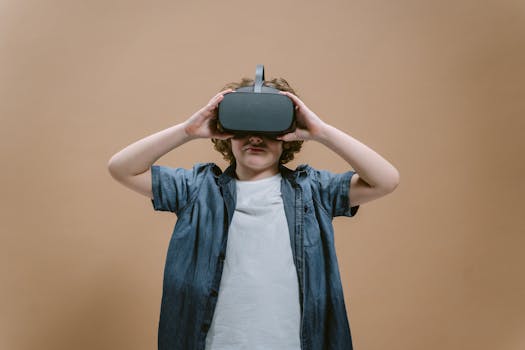
The Future of Education: What 2025 Holds
The Future of Education is a topic that has been on everyone’s mind lately, and for good reason. The way we learn and teach is undergoing a significant transformation, driven by technological advancements and changing learner needs. As we move forward into 2025, it’s essential to understand the trends and innovations that will shape the education sector. In this article, we’ll explore the future of education and what we can expect in 2025.
The future of education is not just about using technology to enhance traditional teaching methods; it’s about revolutionizing the way we learn and interact with information. With the rise of online learning platforms, artificial intelligence, and virtual reality, the education sector is poised for a significant overhaul. In 2025, we can expect to see a more personalized, accessible, and effective learning experience.
One of the primary drivers of this change is the increasing demand for skilled workers in emerging technologies like AI, data science, and cybersecurity. As technology continues to advance, the need for workers with specialized skills will only continue to grow. The education sector must adapt to meet this demand, providing students with the skills and knowledge they need to succeed in an ever-changing job market.
Several trends are shaping the future of education, including:
- Personalized Learning: With the help of AI and machine learning, educational content can be tailored to individual students’ needs, abilities, and learning styles.
- Online and Blended Learning: Online learning platforms and blended learning models are becoming increasingly popular, offering students more flexibility and accessibility.
- Virtual and Augmented Reality: Immersive technologies like VR and AR are being used to create interactive, engaging learning experiences that simulate real-world environments.
- Artificial Intelligence: AI is being used to develop adaptive learning systems, automate grading, and provide personalized feedback to students.
These trends are not only changing the way we learn but also the way we teach. Educators are now expected to be facilitators, mentors, and coaches, rather than just lecturers. They must be able to use technology effectively, create engaging learning experiences, and provide personalized support to students.
Technology is playing an increasingly important role in education, from online learning platforms to AI-powered adaptive learning systems. Some of the key technologies shaping the future of education include:
- Learning Management Systems (LMS): LMS platforms are used to manage and deliver online courses, track student progress, and facilitate communication between students and instructors.
- Artificial Intelligence (AI): AI is being used to develop adaptive learning systems, automate grading, and provide personalized feedback to students.
- Virtual and Augmented Reality (VR/AR): Immersive technologies like VR and AR are being used to create interactive, engaging learning experiences that simulate real-world environments.
- Blockchain: Blockchain technology is being used to create secure, transparent, and tamper-proof records of student achievement and certification.
These technologies are not only enhancing the learning experience but also increasing accessibility and affordability. With online learning platforms and AI-powered adaptive learning systems, students can learn from anywhere, at any time, and at their own pace.
While the future of education holds much promise, there are also challenges and opportunities that must be addressed. Some of the key challenges include:
- Digital Divide: The digital divide refers to the gap between those who have access to technology and those who do not. This can create significant barriers to access and equity in education.
- Teacher Training: Educators must be trained to effectively use technology and create engaging learning experiences.
- Student Engagement: Student engagement is critical to learning outcomes, and technology can both enhance and detract from engagement.
Despite these challenges, the future of education holds many opportunities for innovation, improvement, and growth. By leveraging technology, pedagogy, and policy, we can create a more equitable, accessible, and effective education system that prepares students for success in the 21st century.
In conclusion, the future of education is a complex and multifaceted topic, driven by technological advancements, changing learner needs, and emerging trends. As we move forward into 2025, it’s essential to understand the trends, innovations, and challenges that will shape the education sector. By working together, we can create a more personalized, accessible, and effective learning experience that prepares students for success in an ever-changing world.






